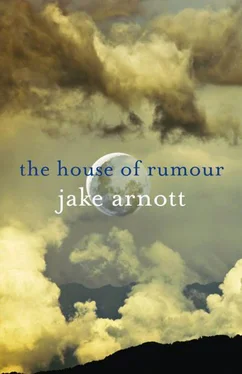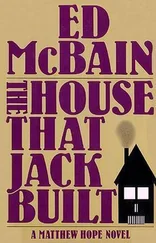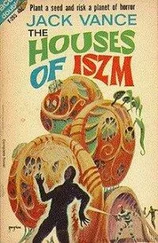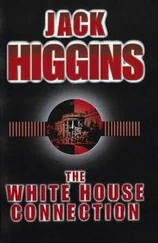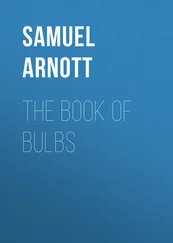‘In order that I may be allowed to continue to attend my trial and to hear its judgement alongside the others, and in order not to be declared unfit to plead, I submit the following declaration to the court.’
He stared directly at the judges and prosecutors as he spoke, carefully unfolding the scrap of notepaper he had taken from his pocket. Then he looked up to the press box beyond, pausing to allow for the delay as the translation was relayed through their headphones.
‘My memory has returned,’ he went on, ‘and is once more at the disposal of the outside world. The reasons for simulating loss of memory were of a tactical nature.’
He continued with his prepared statement but already the courtroom was stirred into commotion, the time-lapse of comprehension adding to the drama. Gasps of shock and anger from the court officials, a wave of laughter breaking out along the gallery. He declared his willingness to accept responsibility for his actions while insisting on the incompetence of the tribunal. He referred to the good faith of his defence counsel who had been taken in by his antic disposition, but already the chamber was in uproar. He smiled, savouring this moment, this great coup de théâtre . As the president of the court rapped his gavel for silence and called for an adjournment, there was yet another clamour as the reporters rushed to their telephones.
Oh yes, there is an art to forgetting.
The day before, the defendants had been shown a documentary film of concentration camps made by US troops in the final stages of the war. Darkness in the court but for the fluorescent strip lights built into the edges of the dock that underlit the faces of the accused. The flicker of the projector pulsing out its ghostly parade. Hess’s attention was caught at once, rapt with wonder, his sunken features hollowed in white-face, a gaunt pierrot caught in the footlights. On the screen the grounds of a slave labour camp: a harvest of corpses, the bodies starkly exposed as if broken out of the earth like the dead on Judgement Day.
‘I don’t believe it!’ he called out.
Earthbound oblivion, then a rush of wind, a blast of moon, a violent spasm wrenching his shoulders. He was dragged out of his blackout by the parachute that pulled him across the field in spastic convulsions of flight. Like a trapped bird. He rolled onto his back and tried to unbuckle his harness. There was somebody there, calling out, grabbing at the cords, taking the strain so that he could free himself. Hess crawled a few paces, tried to stand. His right foot gave way. The other man reached out and held him.
‘Are you German?’
A civilian. A farmer or farmworker. Hess tried to catch his breath.
‘Yes,’ he panted, his English halting but precise. ‘Please. Take me to Dungavel House. It must be close by. It is most important I speak with the Duke of Hamilton. I have an important message for him.’
But he never reached his intended destination. The man fetched the Home Guard. Hess was taken into custody, handed over to the regular army. By the next morning he was in a barracks hospital in Glasgow. Hamilton finally arrived but did not acknowledge all the intricate overtures for peace that had been set in motion. He claimed to know nothing of the contacts in Lisbon, the letters from Albrecht Haushofer. When Hess asked the duke to assemble members of his party to discuss peace proposals, Hamilton replied that there was only one party in the country now. Hess continued to outline what German terms might be but Hamilton told him that any kind of agreement was unlikely.
He wondered, was this some kind of ploy in the negotiations? He asked the duke to request parole for him from the King. He had come unarmed and in good faith yet they treated him as their prisoner.
They took him to London. To the Tower. This gave him some hope. He was under the protection of the King. The guards that paraded outside his window were merely ceremonial. The peace talks might soon begin.
But already the airwaves buzzed with announcements, communiqués. He was running out of time. His mission relied on discretion. All could be lost to rumour, disinformation, propaganda.
The Reich issued a statement. He had suggested in the letter that he left behind that if his quest seemed doomed to failure, they might declare him insane and they took him at his word. The report spoke of his mental disturbance, declaring that he was the victim of hallucinations, under the influence of mesmerists and astrologers. In this deranged condition, it went on, he may have been lured into a trap. Of course this would have to be the official line. To be branded a fool. Yes, but a pure fool. The Parsifal.
His horoscope had been clear enough: it had given him the precise moment to make his flight. But other readings had indicated a dangerous change in the fortunes of Germany. They had to strike the East but secure the West also. Perhaps for now he would be a trump card ready to be played at a later stage. Once the Russians had been defeated, Britain would be forced to make terms.
But soon the fear of real madness began to stalk him. All this talk of being duped, of being hypnotised. Now his mission would have to change its nature. The Chariot card he had been given signified an inner journey as much as an outer one.
He was taken to a stately home in the country. It was designated Camp Z; he was designated Prisoner Z. It was run by the Secret Service. Churchill’s clique of warmongers were hiding him away and trying to get information from him. He thought that they might try to poison him, or fake his suicide. He asked one of the officers guarding him to get in touch with the Duke of Hamilton and request that the duke arrange an audience for him with the King. If he would do it, Hess assured the man, he would receive the thanks of the monarch for a great service to humanity. He was told this was impossible.
At times he felt quite strange. A warmth rising over the nape of the neck into the head; feelings of extraordinary contentment, energy and optimism followed by awful despair and a harrowing fatigue of the brain. He was being drugged, he was sure of it; he was being deliberately disturbed at night by noises and lights that flashed into his room. Some of his guardians would suddenly adopt peculiar facial expressions and glassy-eyed stares. Were they trying to hypnotise him? Were they hypnotised themselves? Had he been surrounded by mesmerised lunatics who would drive him insane?
He could not bear the thought of going mad. Early one morning he dressed in his Luftwaffe uniform and charged out of his room. He threw himself down the stairs but the banisters broke his fall. A week later Germany invaded the Soviet Union. ‘So, they have started after all,’ he said to the officer who told him the news. History had already left him behind.
So his inner journey began. In the words of Goethe that he cherished: according to eternal, iron, great laws must we all complete the cycles of our being. They tried to undermine his self-esteem, question his long-held beliefs. And strange drugs they used. Brain poison, he called it. He’d heard of a Mexican herbal extract that induced hallucinations and delirium.
They were intent on sending him insane but he was determined to control his own madness, to keep them guessing. This would be his interior campaign of psychological warfare. He soon found that the wilful loss of memory was the most perplexing stratagem he could use against his captors. It would undermine them on a subliminal level — no one likes to be forgotten, after all, while he could assume an air of indifference, a charmed cocoon of unconsciousness, free of history or future. Free of time itself. Then he would stage miraculous recoveries to perturb them further. It started as a game. Once he had taken a glass of wine and claimed to an astonished British officer that it had completely restored his faculty of recollection. He watched the horrified and confused face that witnessed this eucharistic act of anamnesis. The sacred loss of forgetfulness in a sacrifice recalled. Do this in memory of me, the redeemer implored. An ancient idea: that all knowledge is remembrance.
Читать дальше
